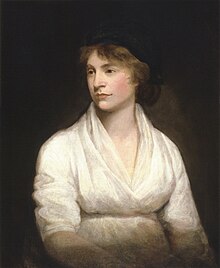From Wikipedia, the free encyclopedia
 |
|
| Founded | 2003 |
|---|---|
| Type | 501(c)(3) |
| Focus | Life extension, rejuvenation, tissue engineering |
| Location | |
Area served
|
Global |
| New Organ Prize, Mprize, Research |
|
| Slogan | Extending Healthy Life |
| Website | www.methuselahfoundation.org |
Methuselah Foundation is a non-profit organization dedicated to extending the healthy human lifespan by advancing
Current Projects
Methuselah Mouse Prize
In 2003, David Gobel seed-funded the Methuselah Mouse Prize (Mprize) to encourage the development of new life extension therapies in mice, which are genetically similar to humans. So far, three Mouse Prizes have been awarded: one for breaking longevity records to Dr. Andrzej Bartke of Southern Illinois University; one for late-onset rejuvenation strategies to Dr. Stephen Spindler of the University of California; and one to Dr. Z. Dave Sharp for his work with the pharmaceutical rapamycin. [2]On May 30, 2014, at the 43rd Annual Meeting of the American Aging Association, Methuselah awarded a $10,000 Mprize to Dr. Huber Warner for his founding of the National Institute on Aging’s Interventions Testing Program. Dr. Warner is a former program director for the NIA Biology of Aging Program and former Associate Dean of Research for the College of Biological Sciences at the University of Minnesota.[1]
New Organ Prize
In 2013, Methuselah launched a second prize series, entitled New Organ, to accelerate solutions to the global organ shortage.[2] The first prize in this series, the $1 million New Organ Liver Prize, “will award $1,000,000 to the first team that creates a bioengineered replacement for the native liver of a large mammal, enabling it to recover in the absence of native function and survive three months with a normal lifestyle.” Future prizes under consideration include awards for the “heart, lung, and kidney.” [3]Strategic Partnerships
Methuselah has also provided funding and strategic support to companies developing breakthrough technologies and clinical interventions in regenerative medicine. These companies include Organovo, a pioneer in 3D tissue printing, and Silverstone Solutions, a maker of kidney-matchingIn 2013, Methuselah announced a new $500,000 partnership with Organovo to place 3D bioprinters in several U.S. university research labs as springboards for cutting-edge research.[3]
Past Projects
SENS Research Foundation
In 2007, under the auspices of the Methuselah Foundation, David Gobel and Aubrey de Grey initiated a new rejuvenation research program entitled “Strategies for Engineered Negligible Senescence” (SENS) in order to help identify, repair and remove cell-level damage before it causes systemic harm.Through Methuselah, Gobel and de Grey established research programs focused on advanced human bioremedial biology at Rice University and Arizona State University—the world's first use of environmental remediation techniques to be directed at reversing "pollution" in human cells.[4] They also established a Mitochondrial Research initiative at Cambridge University aimed at improving the error correction and repair capabilities of fundamental energy producing organelles in humans.[4]
Under the continuing leadership of de Grey, SENS spun out from Methuselah as the independent SENS Research Foundation in 2009, and continues its work “to use regenerative medicine to repair the damage underlying the diseases of aging.” [5]
